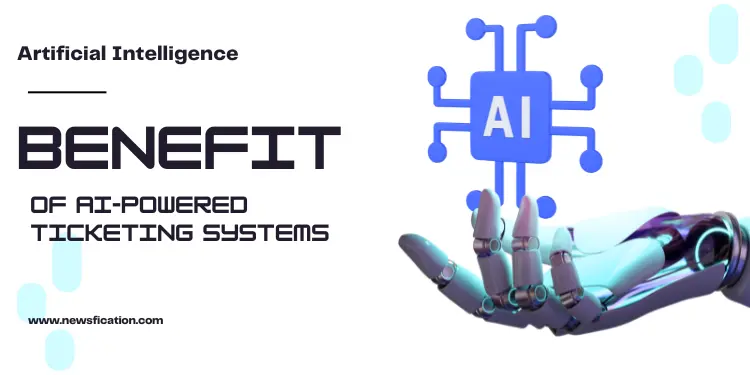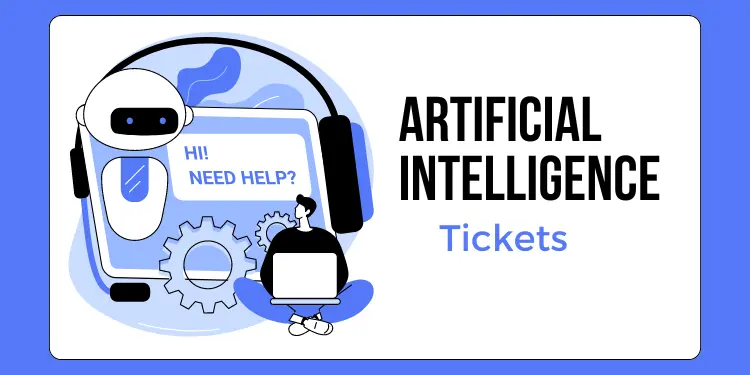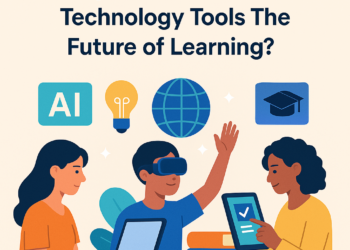Customer support teams face pressure to meet rising request volumes, response speed, and satisfaction standards. As interactions move online, customers also expect more personalized assistance instantly. Not surprisingly, support burnout is common.
Advent artificial intelligence promises relief by streamlining workflows through judicious automation. AI can optimize processes while bolstering service quality when paired with human expertise. This primer explores AI-powered ticketing automation’s benefits across industries.
We’ll cover artificial intelligence tickets, applicable technologies, successful models, best practices, and complexities to consider. Ultimately, support’s future centres on complementary human-AI collaboration, unleashing new potential through partnership instead of replacement.
What is AI-powered ticketing Automation?
Ticket management via software is the first centralized organization that tracks customer inquiries. However, traditional systems rely heavily on manual effort and rigid categorization schemas that need more contextual understanding.
This is where AI-powered ticketing automation enhances the experience through innovations like natural language processing, machine learning, and knowledge bases.
Defining Ticketing Automation
Conventional ticketing involves classifying, assigning, and communicating around requests through a central hub. While streamlining some tasks, manual classification leaves room for errors. Knowledge sharing also relies on static documentation that takes time to update.
How AI Enhances Traditional Systems
AI-powered systems analyze language through technologies like natural language processing and machine learning to deeply comprehend context in a dynamic, personalized way. This fuels more accurate automated actions and responses beyond what rule-based systems could achieve.
Natural Language Processing
NLP examines ticket text to interpret customers’ underlying intents, topics of interest, and emotional states. This fuels contextual understanding critical to subsequent phases.
Machine Learning
ML algorithms use examples from historical ticket data to continuously self-improve at prioritization, routing to expertise, predicting trends, and generating automated replies.
Knowledge Bases
Centralized information repositories power dynamic, AI-assisted self-service options. As new insights and best practices emerge, knowledge bases likewise evolve to serve customers and agents best.
By infusing these advanced capabilities into existing frameworks, AI-powered ticketing transforms traditionally labour-intensive processes into strategic assets, elevating entire organizations and the people within them. But how exactly do the benefits manifest?
Benefits of AI-Powered Ticketing Systems

When thoughtfully applied, AI-powered ticketing automation delivers tangible, experience-shaping benefits across five core dimensions.
- Scalability: Intelligent process automation affords elastic scaling to fluctuating volumes through any channel without major staffing adjustments. Self-learning systems even predict and proactively address emerging trends.
- Improved Accuracy: Advanced NLP examining full ticket context reduces misunderstanding risks compared to manual or rule-based categorization. Customers enjoy first-contact resolutions more often.
- Improved Efficiency: Strategic automation handles repetitive administrative activities, so highly skilled agents focus on complex, empathetic cases. Organizations accomplish more with refined resources.
- Cost Savings: Efficiency gains lower operational expenses through automation while maintaining or increasing customer satisfaction. Optimization likewise surfaces long-term strategic opportunities.
- 24/7 Availability: AI assistants provide prompt, multilingual support globally without added human resource overhead. Customers interact on their terms via preferred channels.
The judicious application of AI-powered ticketing holds excellent potential for elevating entire workflows and experiences. So, where exactly are these innovations creating the most value today?
Industry Use Cases
Various industries worldwide embrace AI-powered ticketing automation to unlock new opportunities where traditional approaches fail. Here, we explore applications making waves in education, healthcare, insurance, and other sectors.
- Education: Chatbots answer student questions about courses and housing, freeing staff for focused advising. Platforms support learners globally with AI flexibility.
- Healthcare: AI schedules appointments and renews medications. Freed staff provide patients more time. Outreach improves care, billing, and wellness.
- Other Industries: Diverse sectors innovate recruiting, retail, and IT with AI-powered consistency, enriching customer and employee experiences.
Opportunities exist across verticals. The next section details precisely how AI-powered ticketing systems intelligently apply advanced techniques at each stage.
How AI-Powered Ticketing Works
AI-powered ticketing works through intelligent processes augmenting human problem-solving. NLP evaluates ticket language and context beyond descriptions to comprehend priority and nature. Machine learning algorithms then sort tickets by logical categories and expertise-aligned agent queues.
Pattern recognition identifies rising issue correlations, alerting teams to address common concerns proactively. Predictive models further notify teams of resolution metrics necessitating attention. Concurrently, knowledge bases and conversational agents naturally resolve general inquiries within dynamic, multidimensional information stores.
This focuses resources on empathetic cases while automating repetitive components. Considerations like change management, data quality and complexity mandate thoughtful adoption explored in the next section.
Challenges of Implementation
While AI-powered ticketing promises benefits, change requires skilful navigation. Here are the top considerations in pre-launch evaluation and adoption:
Complexity
Large-scale deployments integrating various data systems and processes demand devoted technical skills. However, phased rollouts and modular tools address discrete needs accessibly.
Data Quality
ML relies on consistent, representative training examples. Legacy data cleaning and ongoing governance ensure AI evolves systematically on high-quality, anonymized inputs reflecting full diversity.
Change Management
Clear communication educates stakeholders on process refinements toward new potentials. Upskilling helps people synergise native talents with emerging capabilities to have a stable effect.
The Future of Customer Support

Tomorrow’s customer support supersedes the automation of discrete transactions by unleashing human brilliance. AI and ML substantively augment intelligence when guiding strategic decisions from abundant structured and unstructured data.
Blended Human-AI Support Teams
AI handles low-level matters at scale, while highly skilled personnel dedicate nuanced thinking to complex cases, proactive outreach, continual learning, and relationship-building.
Multilingual Conversational Agents
Natural dialogue agents break down linguistic barriers to inclusive support. Simultaneous multi-party translation also fosters global communities and commerce.
Knowledge Graphs and Intelligent Insights
Interconnected tactic-strategy data maps reveal how specific actions influence outcomes. Prediction models then test hypotheses to refine customer understanding and service differentiation continually.
In summary, as AI-powered ticketing realizes its full potential through cooperation instead of competition with human talent, the experience evolutions become limitless. Support oracles guided by joint human-machine wisdom personalize assistance on unprecedented scales.
Conclusion
Thoughtful AI-powered ticketing streamlines repetitive tasks, refocusing support on human-centred challenges requiring sophisticated skills. Automation offers support professionals opportunities to invest in complex cases through empathy, critical thinking and relationship-building.
Customers simultaneously benefit from self-service answers and consistent multi-channel assistance. When used to boost rather than replace human intelligence, AI imbues organizations with insights and global competitiveness in consistency, productivity and satisfaction.
Support leaders can restructure workflows by prioritizing people through capabilities that serve humanity responsibly. With patience and choice governance, artificial intelligence’s full potential to uplift industries and communities will blossom through harmonious human-machine collaboration.


















